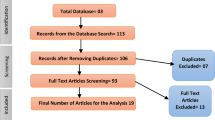Abstract
College students read a trial summary of a sexual abuse case. The victim in the case either claimed that (a) her memory for the abuse had been repressed for 20 years and only recently recovered during therapy, or (b) she consciously remembered the abuse for 20 years but never discussed it until recently in therapy. Participants were significantly more likely to convict the defendant when the testimony was described as nonrepressed (67%) versus repressed (58%). This effect was not modified by the age of the victim at the time the alleged abuse occurred (either 3, 8, or 13 years of age), although the younger and older victims were significantly less believable than the 8-year-old victim. Compared to female participants, male participants were significantly less likely to convict the defendant and rated the victim as significantly less believable. These findings are discussed in the context of recent research on juror reactions to repressed memory testimony.
Similar content being viewed by others
References
Bottoms, B. L. (1993). Individual differences in perceptions of child sexual assault victims. In G. S. Goodman & B. L. Bottoms (Eds.),Child victims, child witnesses (pp. 229–261). New York, Guilford Press.
Clark, H. L., & Nightingale, N. N. (in press). When jurors consider recovered memory cases: Effects of victim and juror gender.Journal of Offender Rehabilitation.
Duggan, L. M., III, Aubrey, M., Doherty, E., Isquith, P., Levine, M., & Scheiner, J. (1989). The credibility of children as witnesses in a simulated child sexual abuse case. In S. J. Ceci, D. F. Ross, & M. P. Toglia (Eds.),Perspectives on children's testimony (pp. 71–99). New York, Springer-Verlag.
Golding, J. M., Sego, S. A., Sanchez, R. P., & Hasemenn, D. (1995). The believability of repressed memories.Law and Human Behavior, 19(6), 569–592.
Goodman, G. S., Golding, J. M., Helgeson, V. S., Haith, M. M., & Michelli, J. (1987). When a child takes the stand: Jurors' perceptions of children's eyewitness testimony.Law and Human Behavior, 11, 27–40.
Gorman, C. (1995, April 17). Memory on trial.Time, 54–55.
Howe, M. L., & Courage, M. L. (1993). On resolving the enigma of infantile amnesia. PsychologicalBulletin, 113(2), 305–326.
Isquith, P. K., Levine, M., & Scheiner, J. (1993). Blaming the child: Attribution of responsibility to victims of child sexual abuse. In G. S. Goodman & B. L. Bottoms (Eds.),Child victims, child witnesses: Understanding and improving testimony (pp. 203–228). New York, Guilford Press.
Leippe, M. R., & Romanczyk, A. (1989). Reactions to child (versus adult) eyewitnesses: The influence of jurors' preconceptions and witness behavior.Law and Human Behavior, 13, 103–132.
Lindsay, D. S., & Read, J. D. (1995). “Memory work” and recovered memories of childhood sexual abuse: Scientific evidence and public, professional, and personal issues.Psychology, Public Policy, and the Law, 1(4), 846–908.
Loftus, E. F. (1993). The reality of repressed memories. American Psychologist, 48, 518–537.
Loftus, E. F., Weingardt, K. R., & Hoffman, H. G. (1993). Sleeping memories on trial: Reactions to memories that were previously repressed.Expert Evidence, 2, 51–59.
Milne, J. (1995, May 26). Judge bars “repressed-memory” testimony in sex-abuse cases.The Boston Globe, p. 27.
Nightingale, N. (1993). Juror reactions to child victim witnesses: Factors affecting trial outcome.Law and Human Behavior, 17, 679–694.
Poole, D.A., Lindsay, D.S., Memon, A., & Bull, R. (1995). Psychotherapy and the recovery of memories of childhood sexual abuse: U.S. and British practitioners' opinions, practices, and experiences.Journal of Consulting and Clinical Psychology, 63(3), 426–437.
Ross, D.F., Dunning, D., Toglia, M.P., & Ceci, S.J. (1990). The child in the eyes of the jury: Assessing mock jurors' perceptions of the child witness.Law and Human Behavior, 14, 5–23.
Author information
Authors and Affiliations
Corresponding author
About this article
Cite this article
Key, H.G., Warren, A.R. & Ross, D.F. Perceptions of repressed memories: A reappraisal. Law Hum Behav 20, 555–563 (1996). https://doi.org/10.1007/BF01499041
Issue Date:
DOI: https://doi.org/10.1007/BF01499041



